
Menu
Brian Montgomery lost his 16-year-old son, Walker, to a sextortion scheme. He’s now on a mission to raise awareness, and we discuss practical ways we can put up guardrails to keep our kids safe.
Brian Montgomery lost his 16-year-old son, Walker, to a sextortion scheme. He’s now on a mission to raise awareness, and we discuss practical ways we can put up guardrails to keep our kids safe.
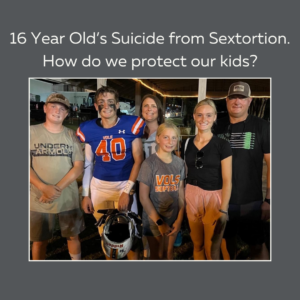
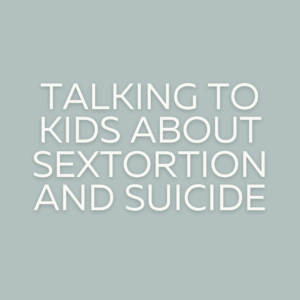

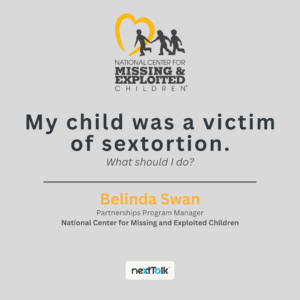

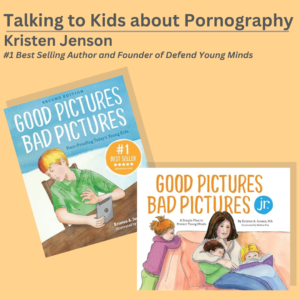
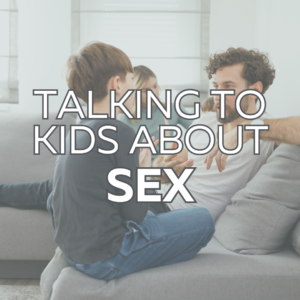






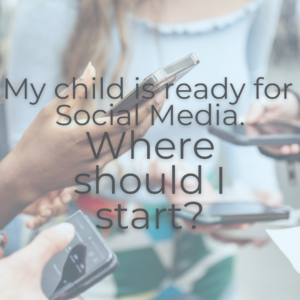

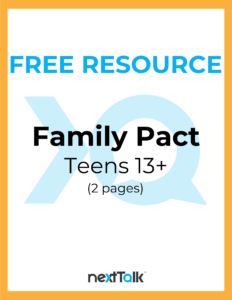



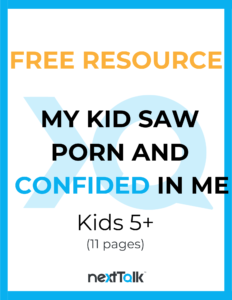

Brian and Courtney Montgomery lost their 16-year-old son, Walker, to suicide after he was the victim of a social media sextortion scheme on December 1, 2022. Although Brian, his wife and three other kids will never be the same, they know God is using Walker’s story to raise awareness about the online dangers our kids face.
Transcription is done by an AI software. While technology is an incredible tool to automate this process, there will be misspellings and typos that might accompany it. Please keep that in mind as you work through it.
Speaker 1:
Welcome to the Next Talk podcast. We are a nonprofit passionate about keeping kids safe online. We’re learning together how to navigate tech, culture and faith with our kids. We are back today with Brian Montgomery. This is Walker’s dad. You guys know him. He is not a stranger to the Next Talk podcast. Brian, how are you?
Speaker 2:
stranger to the Next Talk podcast. Brian, how are you? We’re good, we’re, you know. Life just keeps on going on and we’re working and running kids and doing all the things we were always doing. It just seems like a faster pace every day.
Speaker 1:
How’s your health? You’re good.
Speaker 2:
Yeah, it’s good. So we went back for a checkup, I want to say two months ago, and everything was clear. They didn’t see any. All the tests didn’t show any cancer regrowing. So right now we’re optimistic. You know we got to go back every three months for a checkup, but right now, today, I can tell you what we feel a lot better than we did a year ago. If you remember, a year ago I was still. I was right in the middle of chemotherapy a year ago and it was absolutely miserable and got worse and worse with every treatment. So we’re just thankful. I’m thankful that I’m not feeling that way again. For those that have gone through it, they know it’s boy, it’s tough.
Speaker 1:
Well, we had so many people praying for you and it’s truly answered prayers that you are here right now and doing so well, and I just ask everybody to continue to pray for those healthy results every three months when you go get checked, and let’s keep on those prayers for them. Courtney and the kids are good. You guys are busy Activities.
Speaker 2:
Everybody’s great. You guys are busy. Activities, everybody’s great. You know we’re just staying as busy as we ever have been. Caroline’s doing great in school. She’s, I mean, really just a superstar and doing great. And Bennett’s all into football and all into athletics. And Sarah I think I was telling you offline, you know she’s become our little track star. So we’re we’re having softball startup in the fall. They’ll start practicing here in a month or so, but um, well, it’s just, if it’s one thing, it’s another. We’re just wide open, busy. But yeah, we’re enjoying it, it’s going good.
Speaker 1:
Yeah, One thing I get asked too is are there any updates on Walker’s case? Has anybody been arrested? Do we know anything? And I know you’re probably limited on what you could say, but can you tell us anything?
Speaker 2:
The generic answer is still that the FBI is very confident we’re going to make an arrest and somebody will be held accountable. We hope that’s the case. We’re praying for that’s the case For the dads out there. I know you can imagine all the emotion wrapped up in the idea that there’s somebody out there responsible for this, and well, I’d ask you to pray for me in that. In that regard, that’s a that’s a tough thing for me to have to think about and I’ll cross that bridge when I get to it.
Speaker 1:
We will be in prayer for you. Today I want to talk about. You know you’ve been so good in going out and raising awareness and I know that you’ve been busy with your own kids and so you’re limited in how much you can speak. But you’ve also been in Washington DC working on COSA. You’ve worked hands-on at the state level with legislation, walker’s Law you know you’ve been in the legislative circle enough to kind of see it and you know we talked like we’re both for all of that stuff. But can you kind of speak into? You know what you’ve learned in that space, working in that space.
Speaker 2:
Yeah, I think you know. I guess let me speak to it from a standpoint of my personal motivations. I mean, I think that and I usually say this if I’m in front of lawmakers or speaking and talking to some group about legislative efforts is, you know, as a parent, before any of this happened or even now, I don’t want, I’m not asking the government to provide some law that just that, I think, is going to protect every aspect of risk on the internet and through technology. I just don’t think that’s realistic, it’s not going to happen that way. I need a partner, I need the government to give me tools and to give me support in trying to protect our kids and to recognize the road we’re on as a society is dangerous, really dangerous. And so that’s been my mindset and I think most everybody that I know that’s working towards a legislative solution has got that same idea. And the reason I think that’s important because there are some lawmakers that their idea is well, you just need to be a better parent, you need to take your kids to church, you need to have hard conversations, you need to prohibit them from being in places, they shouldn’t be online, and that’ll solve the problem. And the reality is. We know that’s not the case. That’s an ignorant idea to think that’s the only way that we can move forward. And, like I’ve told you many times, I mean I put it into a very similar context as putting age limits on alcohol and tobacco consumption. At some point we realized that that was not healthy and that parents needed some legislative support to move the behavior of that demographic of people in a certain direction, and that’s the same thing we’re asking for here. But so that’s kind of my mindset.
Speaker 2:
You know, what I’ve learned is our legal system is more corrupt than I could have thought it was. It’s everybody’s got an agenda and it’s really more about. I mean to put it in perspective, you know, last year, from what I understand, meta and the groups that’s represented in their legal lobby sector spent about $90 million to lobby against these legislative efforts. You know, I don’t know if you look at the amount of money that we’ve spent, I say we’ve the lobby group that we’ve worked with and it’s like 12 to 15 parent groups. You know sets of parents that have lobbied $90 million to defeat that. That tells you, I mean, how much money is at stake for these people and it’s just very hard to make any progress there.
Speaker 2:
I mean, you know, last year we were the kids on safety act had passed the Senate, I think 92 to three. I mean, let’s think about that. Ninety two votes in favor of a legislative effort in the Senate. This was, you know, biden was. The Biden administration was still in effect. We were still split in the Senate. I mean it wasn’t like that was a majority conservative or, you know, liberal Senate makeup. It was bipartisan.
Speaker 2:
Everybody was in favor of it. It gets over to the House and they can’t get it up for a vote. And that’s when we were in DC lobbying for that. And the week we’re in DC, meta decides they’re going to send out their troops to tout some new parental tools in their software. I mean, you’re like the whole purpose of that was just to undercut the efforts we were making to make the House think they didn’t need to pass that legislative effort.
Speaker 2:
And we learn now that those tools are not effective, they’re not being enforced, they’re not working, just like we knew they wouldn’t be if they weren’t required to. So it’s a real corrupt system. And the reality is that I don’t know, I don’t, I don’t. I’m in favor of legislation because I think it’s the right thing to do, and I think for us to have a sector that large that is completely unregulated is is asinine. It makes no sense whatsoever, and so I’m I’m in favor of it, but I feel like it’s a very tough system. My optimism of getting something moved is not as optimistic as I once was.
Speaker 1:
That really puts the solution I mean the true solution in keeping our kids safe in our home. Really, I mean, we hope to have I loved how you phrased it we need a partner, we need a partner, we need a partner. We need some assistance here in helping keep our kids safe, for sure, but the real solution really does fall in the home, on the parents and the awareness, the advocacy, the prevention, the conversations, the relationship, everything that we’ve been talking about, and so I want to talk about a little bit about what that looks like, and so I want to talk a little bit about what that looks like, just practical things that you think how we can keep our kids safe.
Speaker 2:
Yeah, I mean, I think at the core of that is relationship, and while you were just saying that, what I wanted to say was the kids that have engaged parents. I think that’s what Walker’s and our family, why it resonates with your audience so much, is because most of your audience are engaged parents that want to be good parents.
Speaker 1:
Like you and Courtney. Just like you and Courtney.
Speaker 2:
Like we are and like we were with Walker, and this still happened. But imagine the kids that don’t have that foundational family. The roads that they can take through unregulated technology is extremely dangerous. And so I mean the people that think this is just, you know, the families that, like I said, are engaged and connected and they want to have a strong, you know, safety net there in the home. It’s not, I mean, it’s this. The reason for legislation is is much outside of the family the parent, the kids that don’t have parents that are engaged. They need help, they need protection.
Speaker 2:
So, to circle all the way back to your question, you know, as a family, what should we be doing? And I think, to me, that the core of that is relationship. And you know, I think that I can look back and think back to the relationship that me and Walker had specifically. We had a, I mean a fantastic relationship. We talked all the time. I mean I never, I was never the best friend dad. I was always dad, you know, and we were not to say that we didn talk about things that that, you know, that were best friend type conversations, but I was still, I tried to always be the be the guy that for Walker that was there as a foundational, I can count, he could count on me, he knew he was going to get it straight and that’s that’s the kind of relationship we had. What I probably missed is that a little bit more close-knit connection that makes you comfortable to have these kind of conversations we’re talking about today.
Speaker 2:
And you know, I don’t think that had anything to do with the choices Walker made on the night of all this happening. I think that he got scared, I think that he recognized the trap he had stepped into. But at the same time, my point is that foundational relationship is where it has got to start, because these are hard conversations, these are uncomfortable conversations that we’re talking about having especially, especially, you know, and it can, it can be between, you know, a mom and a son or dad and a daughter, which dad and a daughter. I wouldn’t recommend that I try to stay out of those conversations and let Courtney handle them, but especially father and son. You know we want to, I want to, I’ve tried in the last three years to to change that two and a half years, to change that um, that relationship with. To change that two and a half years, to change that um, that relationship with with Bennett and I on being able to have a closer conversation around some of these more uncomfortable things.
Speaker 1:
I think that’s why you resonate so well with our audiences, because you know you did have a great relationship with Walker. I mean, I see the hunting pictures and you guys were just father, son, enjoying life, like enjoying life, and you were that foundational voice in his life. And I think that’s why it does resonate so well with us, because we’re engaged like you guys. And that’s not always full proof that because Walker didn’t even it’s almost like he didn’t even have an opportunity to think through what was happening because of all the emotions and the predators knew that. And I think that is what’s so important to raise awareness with our kids of that emotional Anytime you can’t think through something and you’re panicked. You know that is the thing that you need to pause, because their little brains they’re not wired yet to pause and logically think through what just happened.
Speaker 2:
Well, you know, I really thought you know the things that we Walker had participated in a lot of you know, with the outdoors and hunting specifically, he and I have been together on a lot of hunts and you know that if you have never, if you’re not a hunter and you’ve never been on a hunt, you won’t relate to this, but it’s a reality. That becomes a very high-stress. Just everything slows way down when it comes down to the point of you have an animal that you’re going to shoot with a bow or a gun or anything. It changes your perspective on how you see things, and so Walker had been through a lot of those kinds of situations and he understood how to, how to control his emotions in those situations. I just think this was such another level that you know, once it got to that point and I think Walker was smart enough that he recognized that, okay, he I don’t believe that Walker didn’t think that he could come to us.
Speaker 2:
I think that Walker knew that what he was looking at the next morning, people that he knew were going to see what this person was telling him they were going to send, and I think that, I just think it scared him. I think that was something he just could not bring himself to face and he knew that we couldn’t do anything about it. I mean, that’s the reality here that kids need to understand and parents need to understand. I don’t know how many calls I’ve taken where they want to know what to do. You know this has been sent. You know they’ve got this picture or got this video the bad guys. What do we do? Well, I mean, there’s nothing you can do. I wish there was, but there’s nothing that you can do about it at that point, but prepare for what if it is released? What if it is sent out? I just think that reality struck Walker that night and he, he, he didn’t know how to contend with that much stress at one time.
Speaker 1:
It just makes my blood boil that that they target innocent kids in this way. You know and I’m anytime, I’m always sharing walker’s story. There’s that piece, too, where, where, you know, the predator said go steal the money from your dad. And sweet walker, with all of his integrity, said I’m not gonna like, I’m not gonna do that, yeah and um, it’s like they knew the goodness in him and they manipulated it to. I just. It just infuriates me.
Speaker 1:
I did want to tell you, though, we did just recently have a guest on our show for National Center for Missing and Exploited Children, and they were telling me about a new tool to take it down. I don’t know if you know what it’s called, but they’ve created this extortion packet, which has been something that I’ve been now sending parents to just as a what to do. These are your steps, because I think, sometimes, too, we don’t know who to call, we don’t know who to report. Like you know, it’s a frenzy of oh my gosh, our kid has been a victim, and now we know this, what do we do with it? And so I do think we’re evolving in our education of creating steps for parents if their kids fall prey to this, but it’s almost like that’s just been developed since what happened with Walker. Like we’re learning. We’re learning how to help families that are a victim of this.
Speaker 2:
Yeah, and I think you know. Back to your original question is how do we prevent? I mean that the way that we the best thing we can do is you know if I could go back in time is educate Walker. Okay, where do the? What roads are you going down that could lead to these kinds of problems?
Speaker 2:
And I think the first thing that is really difficult to get a kid to understand is the danger that they’re coming up against. They don’t really understand that by just accepting a friend request from somebody that they don’t know or by having what seems like an innocent conversation, they don’t understand that they could be in grave danger, like life and death danger. They don’t understand that. In a lot of my talks I’ll usually say you know, if as a parent, you wouldn’t take a two-year-old and put them on the shoulder of a four-lane highway, and if you did, you could ask them how much danger are you in? They wouldn’t know. They don’t understand. They don’t know what’s going up and down that highway and they don’t have the capacity to recognize that hey, I’m fixing to get run over and it’s going to be the end of my life. And they don’t have the capacity to understand any of that, which is why we prevent them from getting in the road. Now, if I live in a cul-de-sac in a neighborhood, I may walk down there with them and hang out with them in the edge of the street, but I’m not going to turn them loose on an interstate. And that is the best way that I can describe, although they don’t want to admit it. I mean that’s even worse, because a teenager is at a point in life where they want to be independent, they want to be on their own, they want to be the one that calls the shots and that puts them in more danger because they think they know when they really don’t. And as parents, just like that two-year-old, just like that toddler, we’re responsible for putting guardrails in place to keep them from getting in those kinds of situations.
Speaker 2:
And so, going back, if I could go back, I would educate Walker.
Speaker 2:
I would be more educated myself.
Speaker 2:
To begin with, because I say that all the time.
Speaker 2:
If Walker would have heard one of my talks at a school or at a church, he would still be here, because he would have remembered that he may have still fell for the trap, because I can’t tell you how many kids where the parents have told our story to their kids and two weeks later they have a son that did exactly the same thing, but he didn’t go as far as take his own life, he went as far as sending pictures being extorted for money, and he goes to mom and daddy and says, hey, I fell for the same thing, Walker did Help me, and so they recognize that they’re in danger, and so that is apparent to me, Our responsibility is to formulate that relationship, make it so that I can have those harder conversations and educate myself on the dangers out there.
Speaker 2:
I mean because these things are not obvious. It seems innocent, and that’s the whole point of the scam that this particular one that Walker fell for. But there’s all kinds of other different harmful things that are happening that we just gloss over, that are out there and we just don’t know.
Speaker 1:
So, talking about guardrails, and now you have three kids, do you mind me asking are they allowed to have social media and what does that look like now?
Speaker 2:
We just got Bennett an Instagram account. He wants to. He’s playing football and he wants to be able to, you know, post stats and all the stuff that that they, you know they want to do, and so we, he, he, just he’s. He’ll be 16 in September, so uh, he. So he just opened an Instagram account. You know my philosophy. I think that surprises a lot of people that we still allow. Sarah does not have any social media. She’s 13. I think it surprises people that we would still allow that.
Speaker 2:
And I can’t stop being a parent because this has happened and you know, I think about it in the context of preparation for life. I mean, this is going to be here. This technology, in some form or fashion, is going to be a way that we communicate, and if we take this away from our kids, we are setting them at a severe disadvantage socially and I just don’t think that’s the right approach. I think the right approach is, with anything that’s dangerous is to be well-educated. My philosophies with Bennett specifically, and that’s the thing I mean it can be social media or it can be just the Internet. Are you going to cut them off completely from the Internet? What about video games? Are you going to cut them off completely from video games. I mean, I’m not a fan of video games, but that culture is obviously an important activity for them. Their life changes. Guess what I mean. If you were to look back in history 100 years, they wouldn’t believe we talked on the telephone in the 80s. So I mean, it’s just life changes. But education is how we should move forward with it, in my opinion, and as a parent. But education is how we should move forward with it in my opinion, and you know, as a parent, the number one thing I think that we can do is set the expectation. That number one. I recognize this is good technology but it also can be dangerous. That’s number one. Number two is it’s mine and I’m going to monitor it and we’re going to have conversations about it, and those are not controversial conversations. Those can be casual conversations and those are not controversial conversations. Those can be casual conversations. But the third thing is, because it’s dangerous and because it’s mine, I’m going to be paying attention to what’s happening on it the best I can. And that’s where I think that you know the legislative side can go a long way towards helping us as parents, because there are not great solutions out there.
Speaker 2:
From what I’ve seen, I’ve tried, I’ve tried, we’ve tried Covenant Eyes I’ve used it. It works okay. We’ve just used the screen time and family groups on iPhones it works okay. You just got to monitor it, you got to pay attention, and when something pops up that’s suspicious, that you don’t like or that is obviously some kind of a breach in what you all have agreed to, let’s talk. I mean, you’re not in trouble, let’s talk about it. Why did you? Why were you here? What was going on here? What were you talking about? Who were you talking to? Just some basic questions, and I think that goes a long way towards kids saying, okay, it, it at least gives me enough pause to know that there are dangerous things. At least my dad thinks there’s dangerous things happening here, whether I agree or not. And I’m going to have to answer some questions, depending on what I do and where I go and what I say.
Speaker 1:
Yeah, I think that’s so the guardrails you’re putting in place with social media. And I, I mean, you know, I agree with you wholeheartedly on, yeah, delay. I mean don’t give young kids social media. We don’t advocate for that, but I do believe it is a life skill that we have to teach them before they leave our home, and I think a lot of us miss the window because we’re just afraid of it. And so I think it’s very wise of you and you can implement it in stages of you and you can implement it in stages. So like, for example, your son it’s one social media account, he didn’t download four. You didn’t say, okay, you can have social media. Now you have Snapchat, tiktok, all it’s one at a time. And I’m sure there’s now certain guardrails just about that, like a private account, who he’s allowing to follow him, who he’s corresponding with. There’s other guardrail conversations around that now, because of what we know.
Speaker 2:
Yeah, and you know, I think what we’re seeing now is there’s a, there’s a recognition. Obviously, I know that we’re a special case because of the life that, because of where? Because of losing Walker. But you know the conversation of the day. Bennett said, well, such and and such tried to fight, has tried to follow me multiple times. Do y’all know this person? We’re like, no, we don’t know. So it’s, it’s, it’s starting to work. I guess, is what I want you want your audience to hear me say. Is that that constant conversation, and not always about you know, just, I mean, we try not to make everything about Walker and about the life that we’re living now. We want it to be. You know, what are you seeing? What team is doing this? Who got traded, who’s moving, who’s leaving? You know that’s what he’s interested in today and Sarah’s interested in bacon. So I mean, she has a Pinterest account.
Speaker 2:
Look, all of these have some degree of danger associated with them. But the main thing is a parent number one recognize it’s dangerous, don’t bury your head in the sand. I mean, that’s, that’s a reality. And, um, if you think that it’s not dangerous, you’re just not right. And I can point to so many different, different things besides this that happened to Walker. Uh, I think you know, if I would have been a parent hearing this before this happened to us, I would have said none of my kids would. They may get in trouble, but they’re never going to do what Walker did. They’re never going to take their own life.
Speaker 2:
To those people that say that about their kids, I know you love your kids and I know they’re great kids, but I’m telling you they were not more trustworthy than Walker. They weren’t. And that’s not me, that’s not me, just that’s not me Just trying to. I mean, I love Walker and I love my family, but I’m telling you what kind of kid he was.
Speaker 2:
I’m telling you that, as a person that would say that I would never consider, would have said I would never consider suicide, and I’m telling you that. Not that I’ve ever given it like, but there’s been points in this journey where I just wish I was not here, and that’s just a fact. And those are short lived, those have been very short stints, but I’m just telling you that you’re not going to convince me that each and every one of us are not capable of that thought, of that walking down that road, and that’s just one aspect. That’s not, you know it’s considered the drug deals that are happening, the human trafficking that are happening. All I mean there is a smorgasbord of things that are happening in technology that your kids have the ability to fall into. So recognize it is dangerous.
Speaker 1:
I loved what you said there, because when I share Walker’s story at our events, I share it in the context of you can never say never. You can never say your kids would not do this, because Brian and Courtney were fantastic parents, are fantastic parents, right, doing all the right things, and Walker was still a victim of this. So we need to switch our thinking. We just can’t, we cannot fall into the trap of saying our kids would never do that, our kids would never do that because you know we’re active and involved or whatever. I just think it’s such a critical point that good parents recognize that. So I want to talk more a little bit about these guardrails in place. So you know one of the guidelines that we’ve talked about before at Next Talk no phones in bedrooms or bathrooms. How do you feel about that?
Speaker 2:
I’d say that’s probably the number one thing that I have thought about and enforced since Walker’s death is I know that if that phone would have been in my room that night, walker would still be here and there was no reason for him to have it. There was no, there’s no valid reason for any kid to have their phone past bedtime. Now, everybody may. In some homes everybody stays up till 11 o’clock at night. That’s fine. But when everybody goes to bed the phone comes with the parent. It’s just a good way to. It’s just a good way to handle it, not to say the thing. I mean I’ve had parents say, hey, that’s not going to fix it all. I understand it’s not. That’s not what I’m trying to do. We’re trying to put enough things in place that there’s some red flag that occurs if something bad happens and to discourage activities that can lead to that. And I think we’ve talked about it here in the past. We’ve talked about pornography and that was something that was on Walker’s phone.
Speaker 2:
A 16-year-old I’ve said it many, many times that if it had been that accessible when I was that age, you know most men can relate that. Our generation it was typically magazines and either you had to have a buddy that had one, or you had to go to the store and buy one. Both of those were really hard to do, but that was. The worst case scenario then was that you saw things that you shouldn’t have been seeing. You had a warped perception of, you know, a relationship with a woman. Those were bad things. But most men, I’m going to tell you and they may not admit it, they may admit it, I don’t know, but most men have, have had some participation in pornography at some point in their history. That’s just a fact. The statistics say that.
Speaker 2:
And you know, this activity that we think of as innocent today, it’s not. It wasn’t innocent in our day, but it’s dangerous now. That’s different. It’s different in participating in something that causes you poor habits and poor perception. But then you take the next step. We’re in that next step now to where it leads to things that can be dangerous. We’re in that next step now to where it leads to things that can be dangerous, and that’s where I think the no phones in bedrooms and bathrooms, especially for young teenage boys, is really important. Because you take the phone from those areas, it’s less likely for that activity to happen. And I think Walker just saw what he was doing that night as an extension of that behavior.
Speaker 1:
I want to say I agree with everything you said, yes, and I do want to say, though, you know we have seen cases where parents have that guardrail in place and the kids still go sneak at night and get it and get into trouble Like there’s. I know it’s not a hundred percent foolproof, but, like you said, it takes an extra step. It’s another guardrail put in place that could maybe help in a situation, and I think that’s really important. It’s it’s our job to create these guardrails, Like you said.
Speaker 1:
I do want to talk about the pornography aspect a little bit more, because I know we’ve we’ve done a show on that since Walker show about pornography and how you know you’ve really been outspoken about how you believe it desensitizes these kids to where sharing nudes or taking pictures of themselves like it almost creates a blurry line in that, because they they see it so much, they see porn so much, and it’s such a part of their culture. Even if they’re not seeing it, they’re hearing about it. You know in graphic detail about what somebody else watched the night before. So you have a young teen boy and he’s on Instagram and he’s a football player. So what does that look like, that conversation between you and your son about pornography Like what does that look like?
Speaker 2:
The first thing that I think the most difficult part is to bring it up, because it’s embarrassing and it’s, you know, the idea that he would want to look at that. You know, it’s just embarrassing and I think that you know any other parent or teen would be in that same situation. But once that subject has been brought up and you’re I mean it’s not just directly related to pornography, but just a conversation around sex, a conversation around girls, a conversation around how to treat girls and what to think about and you know all of those different things. Obviously, teen boys are talking between themselves. I don’t know this has changed a lot, even from generation to generation, in terms of the reluctance of a parent to have this kind of conversation with a kid, with one of their kids. I mean, it is what it is and we all recognize it. But you know, for me it’s about just being transparent and saying, hey, all right, give them some time. Hey, in 30 minutes we’re going to talk about this. Whenever we get in a truck, there’s a conversation I want you to have around sex, and that kind of gives some time for that conversation to sink in and say, okay, I’m going to have to have this conversation with my daddy, and it’s not just you don’t just spring it on them. You know it’s not just spur of the moment, but I think it goes around asking a lot of questions have you seen anything inappropriate lately? No, you know, that’s generally what you’re going to get, and I don’t get a lot of. I don’t think you’re going to get a lot of feedback. So the fact that they might not be responding but they’re listening and so that just further opens the door and helps, and I think a lot of it is just common sense is listen.
Speaker 2:
God created men and women and I think I told you before. You know, I had a conversation, you know, when I had a. I had a. When I have meetings or events where I speak to kids, I’ll about boys specifically. We relate it to a trap. I use a hog trap in my presentation. I say hogs have a blind spot. They don’t look up. So our trap is elevated.
Speaker 2:
I say boys, what is your blind spot? They all look around. I say well, your blind spot is that you have a physical need for sex. It’s physical. It’s like you desire to eat. That’s natural. It’s the way God made you. Of course, they all snicker and everybody looks at each other.
Speaker 2:
But I try to lighten that a little bit by saying, hey, we’re all here because somebody had sex. Everybody, even your teachers, even your coaches, even your mom and daddy, everybody’s here because somebody had sex. So it’s a fact of life and it’s embarrassing to talk about it. But I think the more that we can be creative in having those conversations in that way, the lighter we can make of the pornography, because that’s a complete change in our culture, in how accessible it is to see, visualize and see two people having sex, and it fulfills, for teenage boys especially. It fulfills that sexual, that need, that physical need for sex, but it but it fulfills it very temporarily. And that sin that then you start to engage in changes your personality, changes how you see other people, changes your reliance on other people, and so it’s. You know, starting that conversation is the most difficult part, in my opinion.
Speaker 1:
It’s almost like you just have to have the courage to start the conversation and I think oftentimes, like stories like Walker’s or other stories that we hear that have ended so tragically, maybe it gives us the push to be like, okay, I need to have this conversation, even though it’s it may be awkward at first. I know for me and my kids like the first couple conversations were totally awkward, but then it’s like we moved into this really cool phase where it’s not as awkward and the bandaid has been ripped off and you can even joke sometimes about it. You know you get into this space where you’re joking with them about their culture and but also then you’re stepping in and being like wait a minute, that’s very dangerous. You know you’re, you’re, you’re being able to do both in that guiding, guidance, foundational. You know, parent role as well.
Speaker 2:
Well, and I think that you know the the problem we have as a, as a society, is there are some major behavioral characteristics that are changing. I mean the the reproductive rate is below two per family now, like 1.8 per family. So that means that we’re not replacing who’s dying. Let’s just put that as a general statement. It means our population is declining. Well, that’s being attributed to the accessibility.
Speaker 2:
I mean, I tell the kids in the meeting I say look, god gave you boys this physical need for sex for a lot of reasons. I mean predominantly so you can compete for a mate. I said, you know, so that you’ll be competitive. All the things that you’re going to be as a man are going to be driven by this physical need. You have to engage in sex. Well, what’s happening now is that they’re fulfilling that physical need because for a man it is physical, it’s a physical act, and I know that I always say that there’s a variation in people, everybody’s different. But I’m just saying as a general statement, the predominance of men is just about the physical act.
Speaker 2:
We have access now through pornography at a really high-quality physical act, more so even than the actual act in many cases, and so you have girls that are trying to live up to what boys are seeing online and you have boys that are having that expectation of these girls that they’d be like what it looks like online and at the end of the day, they’re both being fulfilled in some kind of way and not reproducing, not having kids, not having the same attachments to a relationship. All those things are effects that we don’t know how that stuff is going to end. We don’t know as a society, as a culture, what is that going to mean to the human species long term. It’s new. This is relatively new in the expanse of human. I’m going to use the word evolution is how we have developed as mankind, how God has intended us to be. This is new within the last 20 years that we had this kind of expectation of content, and it’s very scary where it could lead.
Speaker 1:
It’s impacting our relations and our intimacy, you know, because, like you were saying, for men generally it’s very physical and I think for women it’s generally more I don’t know how to put it like romantic, like we’ve got the emotions involved in it right.
Speaker 1:
Yes, it’s an emotional, romantic kind of thing and I think that and that’s again a general statement I know there are different people that would see that differently, but I think you know God brings those two together in a marriage for the man to understand the woman and the woman to understand the man and for this beautiful thing to happen. But what has been happening is the porn has been so captivating it and making it even more physical, I think, than men were even wired for that. That the objectification and the way women are treated, and I mean it is just a rot in our world. It’s a rot.
Speaker 2:
That’s a great way to put it. Yep, that’s exactly right. And imagine these kids are starting now, at 10, 11, 12 years old, of observing this content. And I mean it has no choice but to change. Because I mean you think about a relationship between a husband and a wife, or a boyfriend and girlfriend, for that matter. I mean a lot of those commitments, a lot of the things that it takes to make a relationship.
Speaker 2:
I think about it sometimes and none of us are in our marriage relationship just based on what we can get out of it. But you take away a few of the things that we rely on in that relationship and all of a sudden, the relationship gets really, really difficult and we’re at a point. So what that does that forces us to provide okay, my wife expects this out of me. My wife says, okay, Brian expects this out of me. So we’re going to fulfill those expectations in order to continue to make that relationship strong and help it to grow.
Speaker 2:
Because what’s that say when I say that I will fulfill something in our relationship that you’re counting on? It says I love you. It says I care about you. It says I value this relationship. Well, now we’re starting to say, well, hang on, my wife don’t have to fulfill this in our relationship. I can get it instantaneously through technology, and so that means I can still be a jerk. That means I can go to work all day and not come home. That means that I can put all of my personal needs above hers, and that’s what our kids are learning through this. Set aside all the dangerous things that happened to Walker, that’s just one aspect of it.
Speaker 1:
It’s a selfishness, it’s all about you. It’s all about you and I think that’s a big conversation with kids too is that when you maybe are using porn to masturbate or whatever, while you’re looking at porn, it’s all about you. And so when you enter into a marriage, the way it’s looking at porn, it’s all about you. And so when you enter into a marriage, the way it’s intended to be, it’s supposed to be about fulfilling your spouse. You know, for men it’s supposed to be about fulfilling the woman’s need there and so. But there’s a selfishness because it’s all about you, because that’s how it’s been for the last so many years, and I think you’re right, the younger and younger it gets, like it’s just we don’t know how this is going to end, because now we’ve got, we get calls that yet as young as five years old being exposed to pornography and like, what do I do with that? And I mean these are we’ve seen a huge uptick in the last, you know, probably five years, even for the younger and younger kids getting exposed to porn.
Speaker 2:
So it’s a conversation we cannot skip with our kids in your audience specifically if they recognize something is dangerous for their kids, if they truly say, okay, yeah, this is something I need to be paying attention to, they will do that. And so I think that’s the first step is recognize those dangers, and then after that, there’s a variety of ways to practically work through it, and I think for every family it can be a little bit different. I don’t want to be the parent that sits down and says, okay, we’re going to have our 30-minute weekly meeting about technology. I think that becomes way too robotic.
Speaker 2:
I think that, going back to, I think it’s more driven by the relationship and strengthening that relationship, and I think for me it’s turned into okay, there’s things that my family does that I may not be that interested in, but I’m going to act interested in order to foster that relationship so that I can have those conversations. And I say act interested. It’s not like I’m not interested, but I’m saying there’s things that I’m more interested in than others, and so putting forth that effort shows them hey, daddy really does love me and he wants to, he wants the best for me, and so, therefore, I’m going to give this time that he’s trying to ask of me and work through this with him.
Speaker 1:
And. I think so many times you know, traditionally in my home and a lot of our homes, I was picking the kids up from school and I was with them more and I was having the conversations. But as we have learned to talk more as a family and I’ve seen Matt grow more involved and engaged with our kids through these difficult conversations, it has just it’s huge to have the dad voice in the home speaking into these issues.
Speaker 2:
Yeah, and to do that point, I mean I certainly don’t want to overstate my involvement, because Courtney is the rock when it comes to that. I mean she is, you know, she as far as just participating, and I think if the kids have something hard, they go to her and that’s look, it takes a team and you know, and there’s certain aspects, like I said, I don’t want to have any of those conversations with my daughter.
Speaker 1:
So we talked about some guardrails, you know, definitely like private accounts, making sure they know who their friend requesting or speaking to on Instagram and social media. No phones in bedrooms or bathrooms talking to kids about porn media. No phones in bedrooms or bathrooms talking to kids about porn. Anything else that’s like, before we go today, that you’re like I want to hit on this too. I want to like like get this in there on a, on a guardrail that you have. That’s really important.
Speaker 2:
I don’t think from. I think, going back, I think we’ve kind of hit everything we’re talked with. That that’s important from a guardrail standpoint. I think that if I could have one other aspect that I think is important, it’s having it in our churches and in our schools, those organizations engaging in these issues. I still think we’re living in a world where those organizations are trying to pretend like these problems don’t exist and I think that’s a mistake. And I don’t have any particular first thing, because I’ve spoken in a bunch of churches, I’ve spoken in a bunch of schools, but I think that it’s real easy for this not to be a point of conversation systematically and I think that’s a mistake. Like we need to be bringing those things to the forefront.
Speaker 1:
Well, like you said at the very beginning, like this is not something that I thought would be our story, and so you don’t think about it until it happens to you. And that’s why you’re so outspoken, because you’re like wake up, I don’t want this to happen to you guys. Brian, thank you for being here. Always good talking to you. Please keep us posted on you know, Walker’s case and and your health and whatever we can do to come alongside of you and help your family. We’re always here.
Speaker 2:
Look we’re. I mean again, I know we’ve always said it, but your, your audience and y’all as a family have been so supportive of us and look we, we just appreciate it. I don’t think we could have made this, uh, could have made it without without that impact, without y’all praying for us and being there for us and giving us an opportunity to speak and talk about things, and it’s um, you know that. That’s what. That’s what it gives you hope in the world that we live in that there are people that still care and the people that are still engaged in fighting the fight, same fight that we’re fighting, and so I appreciate y’all for that.
Speaker 1:
Yeah, we’re not going anywhere, we’re in it together for sure. Thanks a lot. Thanks a lot, brian.
Speaker 3:
Thank you. Next Talk is a 501c3 nonprofit keeping kids safe online. To support our work, make a donation at nexttalkorg. Next Talk resources are not intended to replace the advice of a trained healthcare or legal professional, or to diagnose, treat or otherwise render expert advice regarding any type of medical, psychological, legal, financial or other problem. You are advised to consult a qualified expert for your personal treatment plan.
This podcast is not intended to replace the advice of a trained healthcare or legal professional, or to diagnose, treat, or otherwise render expert advice regarding any type of medical, psychological, or legal problem. Listeners are advised to consult a qualified expert for treatment.
Subscribe to our monthly newsletter for all the latest podcast titles, events, and nextTalk news.
nextTalk started in a church with a group of parents who were overwhelmed that their young children were being exposed to sexualized content. Today, we’re a nonprofit organization in the state of Texas and an approved 501(C)(3) entity by the Internal Revenue Service.